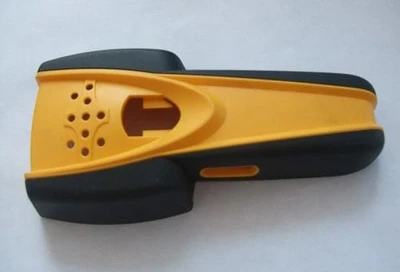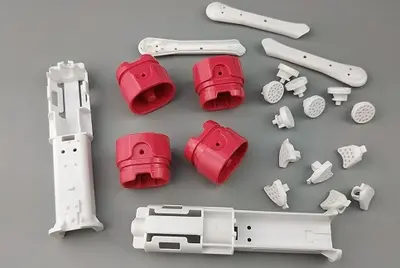

General feature of ABS plastic material
ABS resin is also known as ABS engineering plastics. Its appearance is ivory-colored and opaque pellets. Its products can be colored and have high gloss. The relative density of ABS is about 1.05, and it has the characteristics of low water absorption. ABS has a good combination with other materials, and is easy to be processed by surface printing, coating and plating. The oxygen index of ABS is 18-20, it is a flammable polymer, the flame is yellow, there is black smoke, and it emits a special odor.
2. Mechanical characteristic:
ABS has excellent mechanical properties, its impact strength is extremely good, and it can be used at the highest temperature; even if the ABS plastic part is damaged, it will only be tensile failure and not impact failure. This is the realism of ABS's high toughness. ABS has excellent wear resistance, good dimensional stability, and oil resistance. ABS resin can be used for bearings under medium load and speed. The creep resistance of ABS is greater than that of PC, but less than that of PA and POM. The flexural strength and compressive strength of ABS material are inferior among plastics. The mechanical properties of ABS are greatly affected by temperature.
3. Thermal performance:
The heat distortion temperature of ABS is 93~118℃, and the product can be increased by about 10℃ after annealing; ABS can still show certain toughness at -40℃. Therefore, ABS can be used in the temperature range of -40 to 100°C.
⒋ Electrical performance:
ABS has good electrical insulation and is almost unaffected by temperature, humidity, and frequency, and can be used in most environments.
⒌ Environmental performance:
ABS is not affected by water, inorganic salts, alkalis, and many acids, but it is soluble in ketones, aldehydes, and chlorinated hydrocarbons. It will cause stress cracking when corroded by acetic acid, vegetable oil, etc. ABS has poor weather resistance and is prone to degradation under the action of ultraviolet rays; after being placed outdoors for half a year, the impact strength will be reduced by half. For ABS products that need to be placed outdoors, we recommend using anti-ultraviolet additives.






 Call us on:
Call us on:  Email Us:
Email Us:  1st Floor, Block1, No.3 Beiting Road, Houting Community, ShaJing Street, Bao'An District, Shenzhen City, Guangdong Province, China
1st Floor, Block1, No.3 Beiting Road, Houting Community, ShaJing Street, Bao'An District, Shenzhen City, Guangdong Province, China